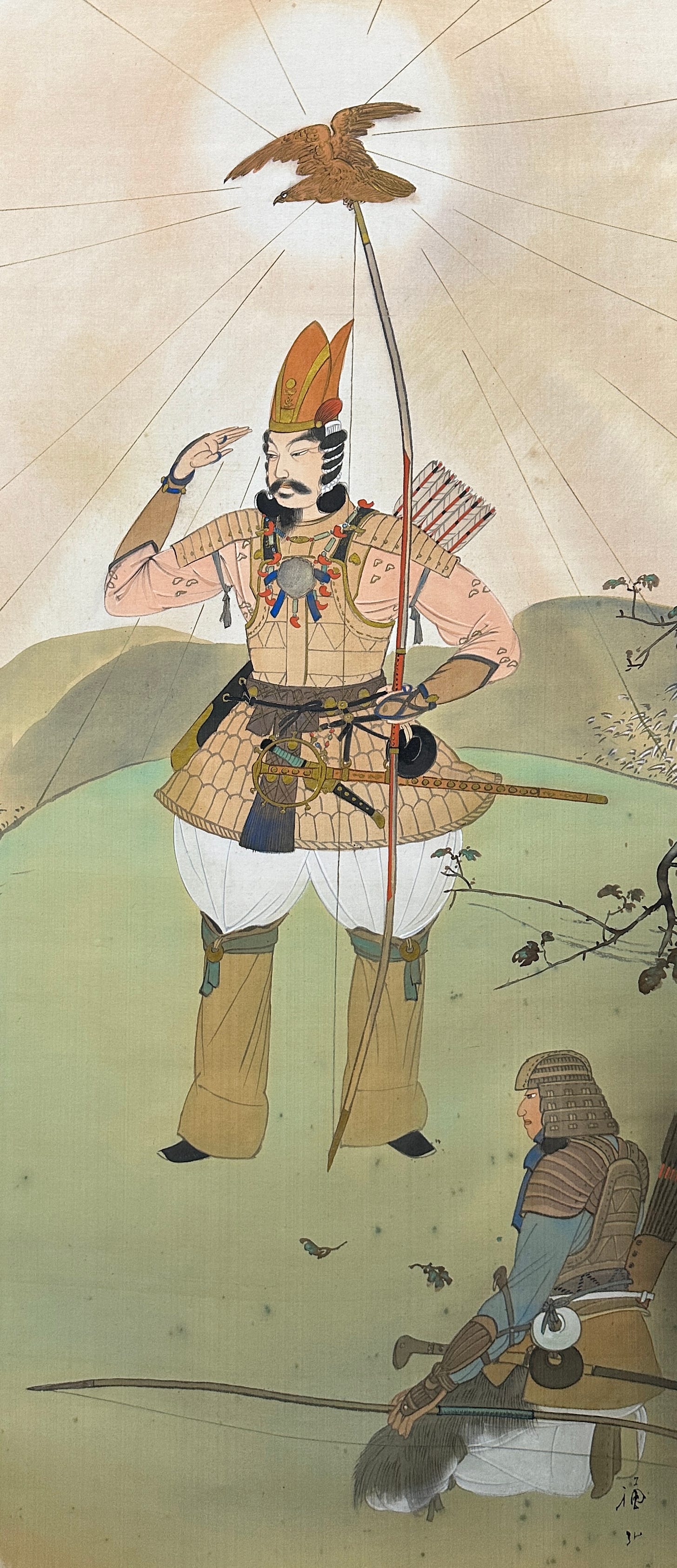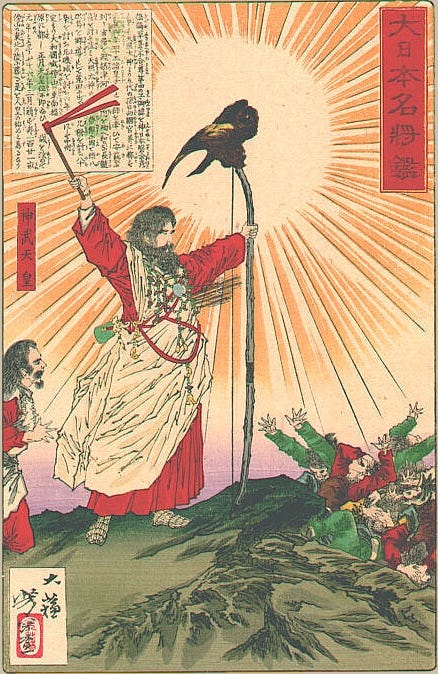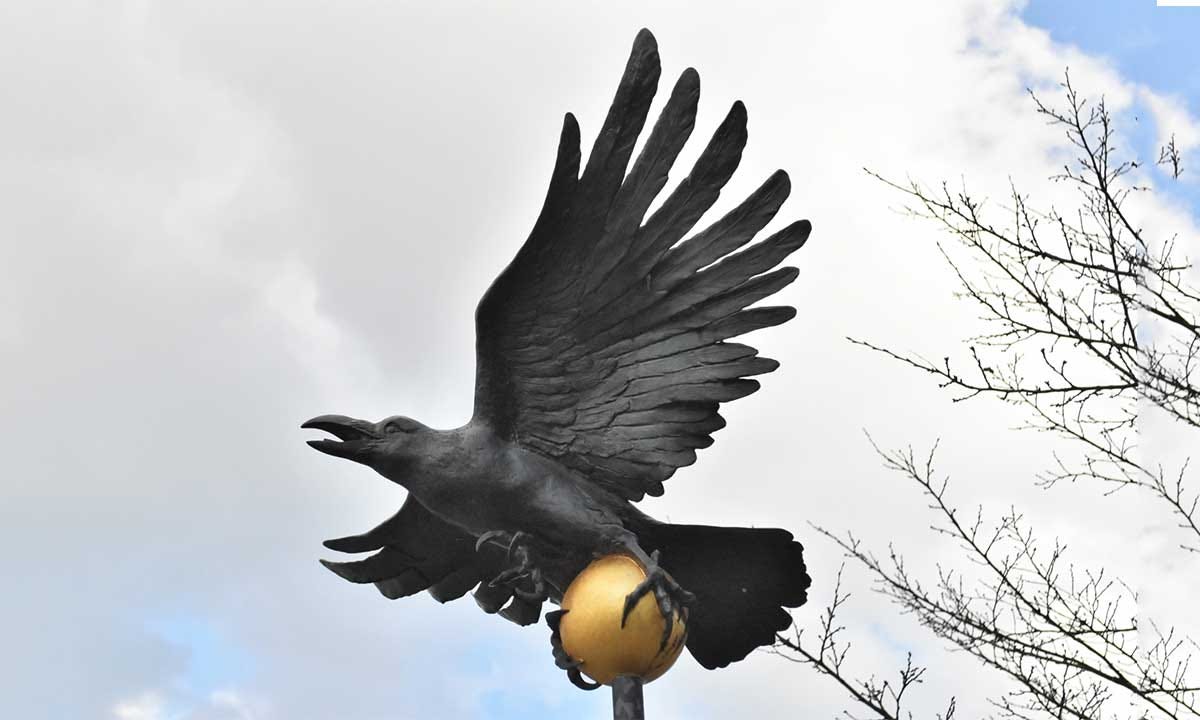
The three-legged crow, known in Japanese as Yatagarasu (八咫烏), is a prominent symbol in Japanese mythology and is closely associated with Jimmu Tennō and his legendary journey to unify Japan. The name Yatagarasu translates as “eight-span crow,” and in mythology, it represents a divine guide, a messenger of the gods, and a symbol of power and legitimacy.
Origins and significance of Yatagarasu
Yatagarasu’s origins lie in ancient Japanese mythology and appear in texts such as the Nihon Shoki and the Kojiki. Although Yatagarasu is referenced in several contexts within Japanese folklore, it is most famously associated with the story of Jimmu Tennō. In these accounts, Yatagarasu was sent by Amaterasu, the sun goddess, to guide Jimmu on his eastward journey from Kyūshū to Yamato, where he would ultimately establish his kingdom and be crowned as Japan’s first emperor.
The three-legged crow also has parallels in Chinese and Korean mythology, where it is associated with the sun and celestial power. In these myths, the crow symbolizes authority and divine illumination, and its presence in Japanese folklore as Yatagarasu retains these meanings.
Yatagarasu as a Divine guide
In the story of Jimmu Tennō, Yatagarasu was sent to assist the young prince in overcoming the challenges of his expedition. As the story goes, while Jimmu advanced eastward on his unification mission, he encountered numerous obstacles, such as difficult terrain and hostile forces. To aid his journey, Amaterasu dispatched Yatagarasu, who guided Jimmu and his army through mountainous and challenging landscapes to the region of Yamato.
Yatagarasu’s role as a guide is not only physical but also spiritual. In Japanese culture, Yatagarasu symbolizes divine intervention and protection, suggesting that Jimmu was not only destined to succeed in his conquests but also had the gods’ support. The presence of the three-legged crow is a sign of Jimmu’s legitimacy as a leader and of the gods’ approval in his mission to establish a harmonious realm.
Symbolism of the three-legged crow
The most distinctive feature of Yatagarasu is its three legs, which carry complex symbolism. In various Asian cultures, the three-legged crow is a symbol of power and a connection to the heavens. In Japan, Yatagarasu’s three legs are often interpreted as representing three essential virtues: wisdom, power, and benevolence—qualities crucial for a just and effective leader like Jimmu Tennō.
Another interpretation suggests that the three legs symbolize past, present, and future, making Yatagarasu a symbol of continuity and unity across time. This connects Jimmu to a divine mission, as his role was not only to unify Japan physically but also to establish an enduring imperial lineage. In a spiritual context, the three legs also signify harmony between heaven, earth, and humanity, a central idea in Japanese philosophy and the concept of divine leadership.

Yatagarasu in japanese culture
The image of Yatagarasu has endured in Japanese mythology and remains significant in modern Japanese culture. Today, Yatagarasu is a popular symbol of guidance and protection. For instance, it serves as the emblem of the Japan Football Association, representing guidance and the spirit of perseverance in competitive sports.
In the spiritual realm, Yatagarasu is venerated at various shrines, such as Kumano Hongū Taisha in the Wakayama region, where it is considered a divine protector and guide for travelers and pilgrims. Its image appears on emblems, charms, and artwork, continuing to serve as a symbol of divine aid, especially in times of confusion or difficult decisions.
The three-legged crow, Yatagarasu, which accompanies Jimmu Tennō on his expeditions, is a powerful mythological figure in Japan. Its role as a guide sent by the goddess Amaterasu is central to legitimizing Jimmu as the first emperor and his mission to unify Japan. Through its three legs, Yatagarasu represents wisdom, power, and benevolence—qualities essential to leadership. Beyond mythology, Yatagarasu remains a symbol of protection and guidance, reflecting Japan’s values of spirituality, loyalty, and unity between the divine and human realms.



